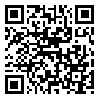BibTeX | RIS | EndNote | Medlars | ProCite | Reference Manager | RefWorks
Send citation to:
URL: http://jls.khu.ac.ir/article-1-1832-en.html
Founded on Shii beliefs, Safavid dynasty adopted an ideological policy for its survival. It went so far as to develop directives and a set of principles for poets and composing poetry. For instance, poets were expected to write odes about the position of His Majesty the King, the true follower of the Imams, and the Imams, peace be upon them. By doing this, they received rewards from the court. With the increasing popularity of jurists, needless to say, the poets’ career dwindled. Indeed poetry’s audiences were not but ordinary people. Nonetheless, poets who had considered the Safavid court as a place to honor poets and a reliable institution for publishing their poems for a long time, left the Safavid court at this time. Instead, they took shelter in the great Mongol Timurid’s court in India, where literature, poetry, and poets were well-liked and gifts were bestowed on the poets. Therefore, the Iranian poets decided to immigrate to India for their art to be glorified and to gain the freedom and the initiative to expand the scope of their subjects, thoughts and poetic images and to increase the repertory of Persian words, expressions and images. This article aims to discuss briefly this matter.
| Rights and permissions | |
 | This work is licensed under a Creative Commons Attribution-NonCommercial 4.0 International License. |





